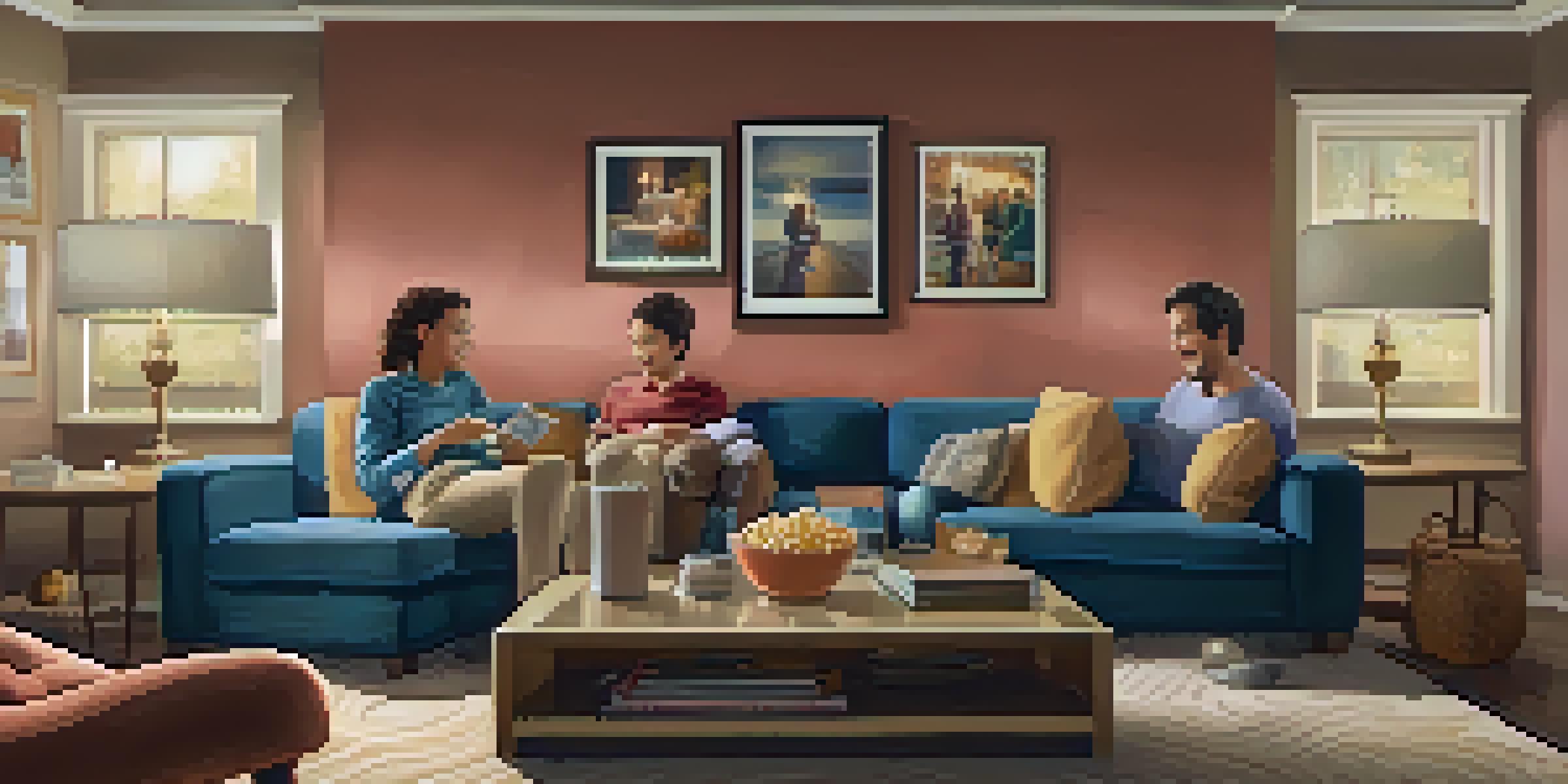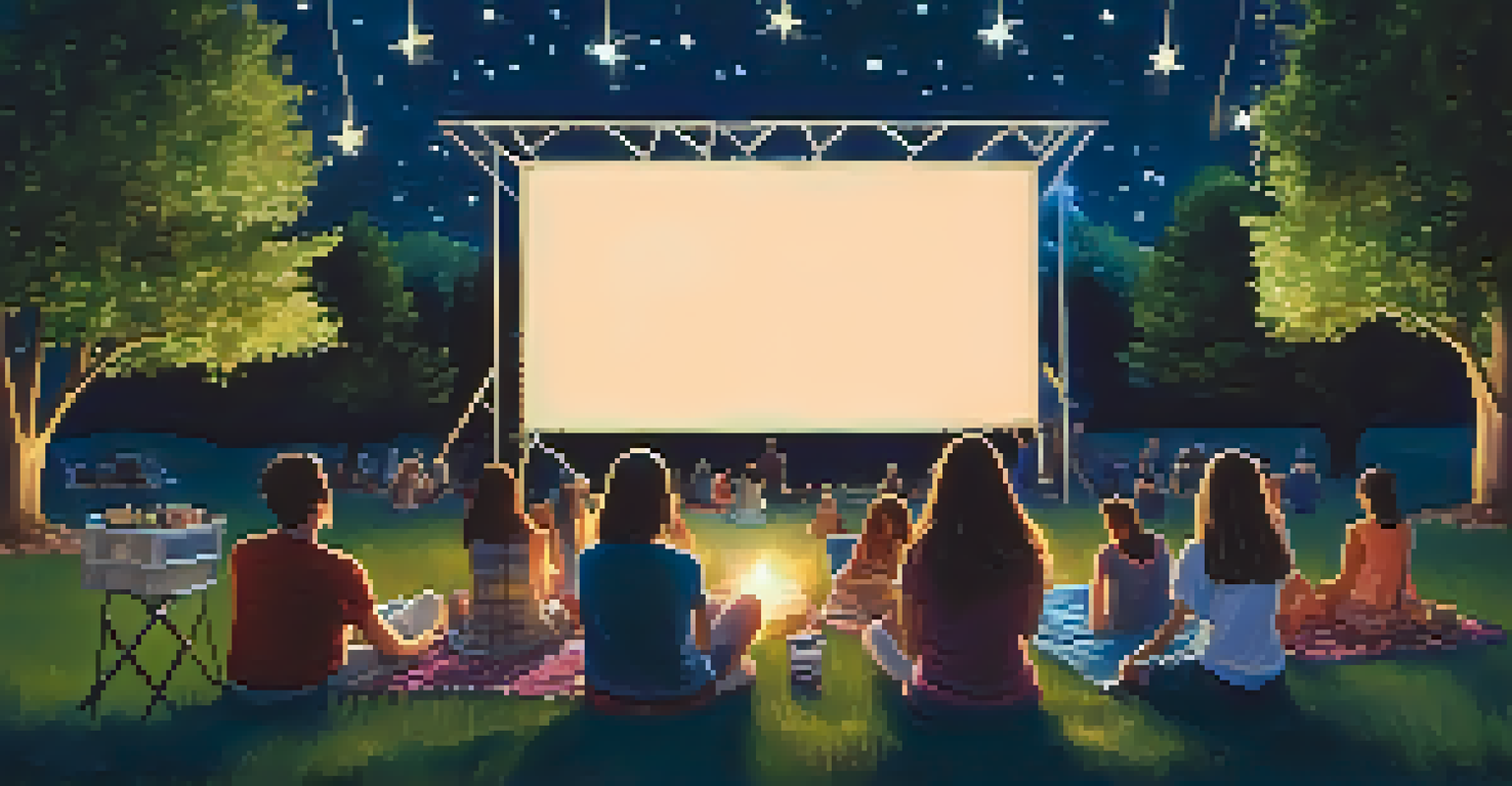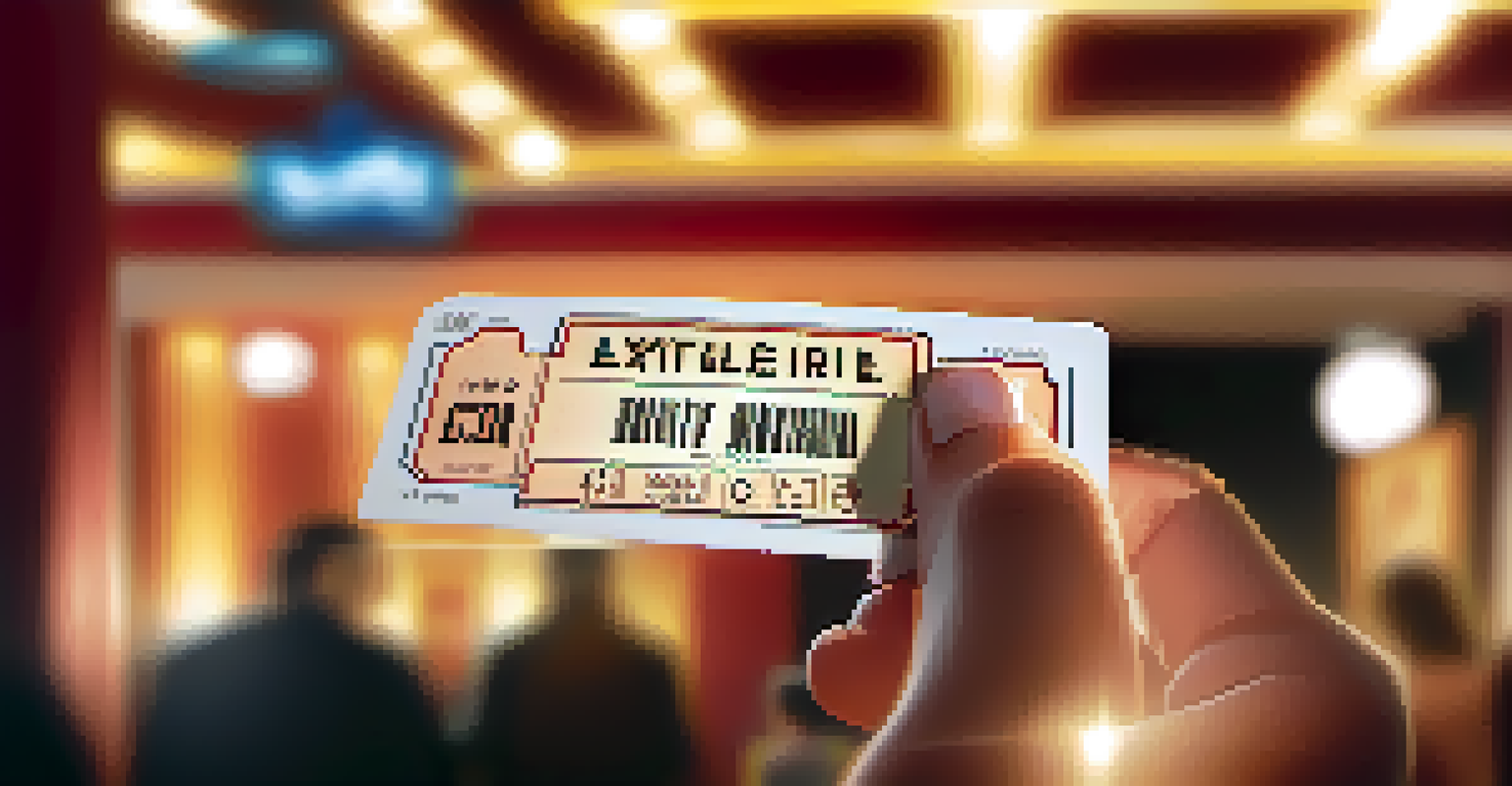Understanding Emotional Connections: Why We Love Movies

The Power of Storytelling in Film
At the heart of every great movie is a compelling story. Stories have the power to transport us to different worlds, evoke emotions, and resonate with our personal experiences. Whether it’s a heartwarming tale of love or a thrilling adventure, storytelling captures our imagination and keeps us engaged.
Movies are a doorway to another world, allowing us to feel emotions we often suppress in our daily lives.
When we watch a film, we connect with the characters and their journeys. Their struggles often mirror our own, creating a sense of empathy and understanding. This connection is what draws us into their world, making the experience feel personal and impactful.
Ultimately, storytelling in film serves to remind us of our shared human experience. It’s a way for us to explore complex emotions and situations in a safe environment, allowing us to reflect on our lives and relationships.
Emotional Resonance: Identifying with Characters
One of the most profound aspects of movies is our ability to identify with characters. These fictional beings often reflect our own struggles, aspirations, and desires, making it easy to see ourselves in their shoes. This emotional resonance is a powerful tool that filmmakers use to draw us into the narrative.

For instance, consider a character facing a major life decision. Their internal conflicts can mirror our own, prompting us to reflect on similar choices we've faced. This shared experience creates a bond between us and the character, deepening our emotional investment in their journey.
Storytelling Transports Us Emotionally
Compelling stories in films allow us to connect deeply with characters and their journeys, reflecting our own experiences.
When we root for a character, we’re not just cheering for them; we’re also cheering for ourselves. Their triumphs and failures evoke real emotions within us, illustrating the profound connection we can forge with these on-screen personas.
Nostalgia: Movies as a Time Capsule
Movies often serve as nostalgic reminders of our past experiences. Certain films can transport us back to specific moments in our lives, triggering memories that evoke strong emotions. This nostalgia can be comforting, as it allows us to relive cherished moments.
Film is one of the three universal languages, the other two being mathematics and music.
Think about a movie that you loved as a child; watching it again can bring back a flood of memories from that time. The sights, sounds, and emotions associated with that film can create a sense of warmth and familiarity, making it feel like a piece of home.
This nostalgic connection not only enriches our viewing experience but also reinforces our emotional ties to the film. It’s a reminder of who we were and how those experiences shaped us, making movies a significant part of our personal narrative.
The Role of Music in Enhancing Emotions
Music is a vital component of filmmaking that often amplifies our emotional responses. A well-composed score can heighten tension, evoke sadness, or elicit joy, transforming a scene from ordinary to extraordinary. The right melody can linger in our minds long after the credits roll.
Consider how a dramatic scene becomes even more powerful with the addition of a haunting score. The music guides our emotions, helping us feel exactly what the filmmakers intend. It’s like a roadmap for our feelings, leading us through the emotional landscape of the film.
Nostalgia Enhances Viewing Experience
Movies act as time capsules, evoking cherished memories and creating emotional ties that enrich our connection to the film.
This symbiotic relationship between music and film underscores the emotional connections we form while watching. It’s a reminder that films are not just visual experiences; they are a symphony of sights and sounds that resonate deeply within us.
Shared Experiences: Watching Movies Together
Watching movies is often a communal activity, bringing friends and family together. Sharing the experience of a film can enhance our emotional reactions, as we laugh, cry, and cheer alongside others. This sense of togetherness deepens our connection not only to the movie but also to those we watch it with.
Think about the last time you watched a movie with friends—didn't those shared laughs or gasps make the experience even more memorable? These collective reactions create a bond, allowing us to discuss and relive moments long after the film has ended.
In a world that can feel isolating, movies provide a platform for connection. They invite us to share emotions and experiences, reminding us that we’re never truly alone in our feelings.
Catharsis: The Emotional Release of Films
Movies often serve as a form of catharsis, allowing us to release pent-up emotions in a safe environment. Engaging with a film can provoke laughter, tears, and everything in between, providing an outlet for feelings that we might otherwise suppress. This emotional release can be refreshing and liberating.
For example, a dramatic film may evoke tears that help us process our own grief or sadness. In this way, films become therapeutic; they provide a space for us to confront and explore our emotions without judgment.
Music Amplifies Emotional Impact
The right musical score elevates film scenes, guiding our feelings and enhancing our overall emotional engagement with the story.
This cathartic experience is one of the reasons we turn to movies during difficult times. They offer solace, understanding, and a chance to heal, reinforcing our emotional connections to the stories being told.
The Impact of Visuals on Emotional Engagement
The visual storytelling in films plays a crucial role in how we experience emotions. Cinematography, color grading, and shot composition all contribute to the overall mood of a film, influencing how we feel during critical moments. A beautifully shot scene can evoke a sense of wonder, while darker tones may create tension or discomfort.
Consider a bright, sunlit scene filled with vibrant colors versus a gloomy, shadowy setting. The visual choices made by filmmakers guide our emotional responses, drawing us deeper into the narrative. This connection enhances our engagement, making us feel more invested in the story.

As viewers, we are not just passive observers; we are active participants in the emotional landscape crafted by the filmmakers. This visual engagement is key to understanding why movies resonate with us on such a profound level.
Conclusion: Why We Will Always Love Movies
In essence, movies tap into our most profound emotions and experiences, creating connections that resonate deeply within us. From storytelling and character identification to the power of music and visuals, films have a unique ability to reflect our lives and emotions. They allow us to explore complex feelings in a relatable and accessible way.
Our love for movies stems from their ability to evoke nostalgia, foster connection, and provide catharsis. They are not just entertainment; they are a vital part of our cultural and emotional landscape.
Storytelling Connects Us Emotionally
Compelling narratives in films resonate with our personal experiences, fostering empathy and emotional engagement.
As we continue to watch and share films, we nurture our emotional connections, reminding ourselves of the shared human experience. This is why movies will always hold a special place in our hearts.